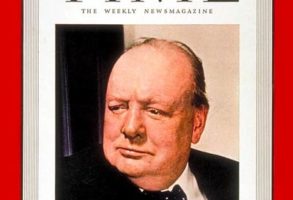
Published June 22, 2018
When Stefan Kanfer left Time after a career there of many years (as writer, critic, and editor of the magazine’s Books pages), we had a party for him at the Players Club on Gramercy Park. His friend Henry Grunwald spoke feelingly, searching (in some frustration) for words with which to do justice to Steve as a complicated and endearing and, if you looked at him from a certain angle, a vaguely dangerous man: a phenomenon. Steve was vivid and elusive—several kinds of genius or near-genius thrown together, like cats in a bag.
I have known no one like him. He might seem wildly contradictory to an outsider, but ultimately, I think, the contradictions were superficial. He was Kanfer. He had a primitive integrity of character, at ease with his various roles: the moralist with a decisive, ruthless mind; the novelist with an amused, discerning eye; the critic with a fund of considerable learning, and the deeply serious man who was also incredibly funny—full of mimicry and broad routines out of the Catskills or the Marx Brothers, or W.C. Fields, the most magnificent of all the shikker goyim. Steve was hilarious but not superficial, and humane when his sensitive instruments told him that he could trust the people who were laughing. He loved S. J. Perelman and for fun described himself as “whip-smart and button-cute.”
But his roots were Romanian and, beneath the surface, he had a Carpathian fierceness, the relentless (yet, under the circumstances, entirely civilized) Never Forget: the reflexes of a blood-feuding man who knew that wolves come out at dusk and that they hunt in packs. You would not wish to be his enemy. You should have heard him on the subject of Lillian Hellman and her Stalinism—hostilities from the Pleistocene. He was the kindest of men, but his memory for slights was long and detailed; he was not big on forgiveness. He once lit into Roger Rosenblatt for buying a German car. His intolerance of frauds and anti-Semites and the like was formidable. Elie Wiesel, another Romanian, was a close friend. The three of us sometimes had lunch at an Italian place on the East Side and talked about Israel, Elie shrugging in his ineffable, interrogatory way, working his expressive face, his semaphore of eyebrows.
Steve and I were friends for about 50 years—much of our adult lives. One rule of our email correspondence was that the header on the email, no matter what the content of the message itself, should be a phony tabloid headline, as from the New York Post or National Enquirer. Once, for example, I received an email headed: “BRAVE MORROW: ‘I WANT TO BE A GIRL!’” That kind of thing.
We met at Time, where I started out writing the People section (a job I loathed, doing items about Jackie Onassis and Elizabeth Taylor and Richard Burton). Steve wrote show business stories and occasional reviews. Here was our first encounter: sitting in my office on the 25th floor of the Time-Life Building late one night, I heard laughter down the corridor, and the chinking of ice in glasses, and a succession of voices, the first being that of Kirk Douglas, the second that of George Jessel, and the third that of Gregory Peck. It was Steve, an eerily accurate mimic, in full shtick, with an audience of writers, researchers, and copyboys. He had Peck talking to the men of his platoon on a troop ship, the night before the big invasion: “Men, we will be going over the side at dawn . . . I don’t have to tell you—it’ll be rough, and some of us aren’t going to make it . . . So I’d like to take this opportunity to say a few words to you about the United Negro College Fund.”
For years, we met for lunch on Thursdays at Joe Allen’s Restaurant on West 46th Street—a group of eight or ten of us: Steve and I, Rosenblatt, John Leo, Paul Gray, Ron Sheppard, Jess Korman, Chris Porterfield, Michael Walsh, B.J. Phillips, Gary (that is, Gerald) Clarke. Sometimes Dick Cavett would come; he and Porterfield had been roommates at Yale. (Cavett would do his imitation of the Chinese-American actor Keye Luke playing the sinister Japanese officer talking to an American prisoner: “You forget, Captain, that a chain is only as strong as its weakest rink!”) One day Steve put his arm around the shoulder of Gerald Clarke (the distinguished biographer of Truman Capote, and a goy if ever there was one) and in George Jessel’s toastmaster voice shouted, “You wouldn’t buh-leeve what this man has done for Israel!”
Steve was friends with Chuck Jones, the great animator who invented Bugs Bunny and Daffy Duck and Wile E. Coyote. We formed the Chester A. Arthur Chapter of the Chuck Jones Fan Club of America. Chuck came to our Joe Allen’s lunches when he was in town and would doodle on napkins for us (I have a few of them framed and hanging on the wall of my study) and would talk about what he had learned from Mark Twain about the art of characterization with one perfect line. Chuck was an endearing man, and when he stood with a drink in his hand and his head cocked back, he looked just like Bugs with a carrot. “Eh, what’s up, doc?”
I thought now and then that the key to Steve Kanfer had something to do with a vivid and finely worked anger, buried deep: an energy from the center of the earth. He was a Jew in the twentieth century, after all—born in 1933, the year that Adolf Hitler came to power. But 1933 was also the year that the Marx Brothers released Duck Soup (Groucho’s Rufus T. Firefly in antic Freedonian courtship of Margaret Dumont). It occurred to me that the beloved Stefan Kanfer’s mind took shape in the immense discrepancy between those two spectacles—the Third Reich and Duck Soup.








